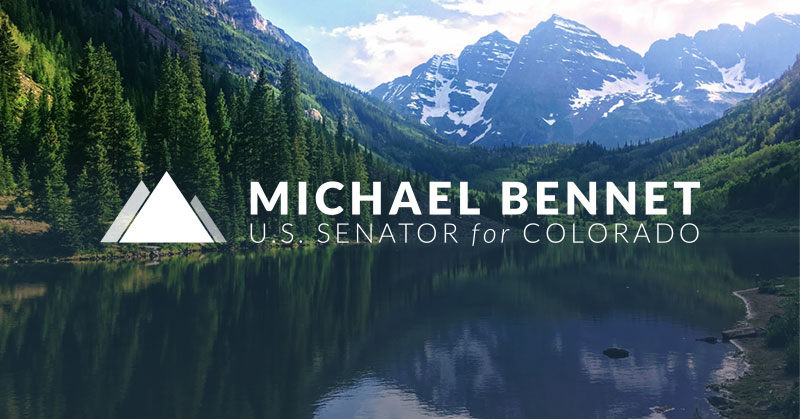Source: United States Senator for Colorado Michael Bennet
Denver – Last week, the Grand Junction Daily Sentinel published an editorial highlighting Colorado U.S. Senator Michael Bennet’s decade-long effort to build consensus and introduce legislation to protect the Dolores River Canyon. Bennet introduced the Dolores River National Conservation Area Act with Colorado U.S. Senator John Hickenlooper last month to designate a portion of the Canyon within Dolores, Montezuma, and San Miguel Counties as a National Conservation Area (NCA).
Bennet worked with leaders in Southwest Colorado for years to develop this bill, and it represents over a decade of collaboration and compromise by a diverse coalition that worked together to find the best way forward for the Dolores River Canyon.
The Grand Junction Daily Sentinel also highlighted Bennet’s Colorado Outdoor Recreation and Economy (CORE) Act and called for action on this bill in Congress.
Bennet has worked on the CORE Act with Coloradans for over a decade to protect over 400,000 acres of public land in Colorado, boost the state’s economy, establish new wilderness areas, and safeguard existing outdoor recreation opportunities for future generations. It has previously passed the U.S. House of Representatives, and Bennet continues to work with his colleagues to find a way to get this bill through the Senate. The Senate held its first committee vote on the CORE Act in May.
The full editorial is available HERE and below.
Grand Junction Daily Sentinel: Editorial: A bipartisan win for public lands
We didn’t see it coming, but the Dolores River National Conservation Area and Special Management Area Act, which was introduced in the Senate last month by U.S. Sens. Michael Bennet and John Hickenlooper has gained some surprising bipartisan support.
The measure would protect more than 68,000 acres in Dolores, Montezuma and San Miguel counties as a national conservation area in the case of Bureau of Land Management land, and a special management area on national forest lands, according to reporting by The Daily Sentinel’s Dennis Webb.
First of all we have to give Sens. Bennet and Hickenlooper a lot of credit for putting this bill together. This is the result of years of work with county leadership, the Ute Mountain Ute Tribe, conservation groups and other local stakeholders all coming to the table.
There were times when parties to this deal walked away, but the conversations kept happening and a positive piece of legislation emerged as a result. Everyone who worked through this process shares in the credit. Well done.
Sen. Bennet in particular should be commended for his decade of work to get this bill negotiated, written and over the finish line.
This is a true compromise that protects important landscapes and natural resources while also preserving private land rights. This is the type of collaborative bill-making that should be cheered by both sides of the aisle.
That brings us to Rep. Lauren Boebert, who this week put her weight behind this bill, introducing it in the House with the support of other Colorado Republicans. It’s been easy for Republicans in the past, while serving in the minority, to reflexively oppose any legislation proposed by the Democrats even if it was a well-written bill that benefited their district. She did not do that in this instance and that can’t be ignored. It should be praised.
Boebert, in her news release, described the bill as a locally driven, bipartisan compromise measure “that threads the needle.” We think that’s right on and we hope, with her newfound interest in bipartisanship and public lands protection, she might reconsider her opposition to Sen. Bennett’s proposed Colorado Outdoor Recreation and Economy (CORE) Act.
The CORE Act would provide new protections for more than 400,000 acres of public land in Colorado. It would withdraw 200,000 acres in the Thompson Divide area southwest of Glenwood Springs from future oil and gas leasing, include wilderness or other conservation designations for other lands from Colorado’s central mountains to southwest Colorado, and formally designate the boundaries of the Curecanti National Recreation Area west of Gunnison.
It also would establish Camp Hale outside Leadville as a National Historic Landscape. The 10th Mountain Division’s ski troops trained there during World War II.
We see no reason why this bill should not also receive bipartisan support. It is supported by the local communities that it would affect and protects a landscape important to the history of our armed services — honoring the 10th Mountain Division’s service.
The CORE Act has passed the house in the past, but has yet to clear the Senate. That body has recently also found some bipartisan agreement on everything from gun control to veteran health care. We urge the Senate to continue this bipartisan trend with the protection of some of Colorado’s beautiful public lands.
